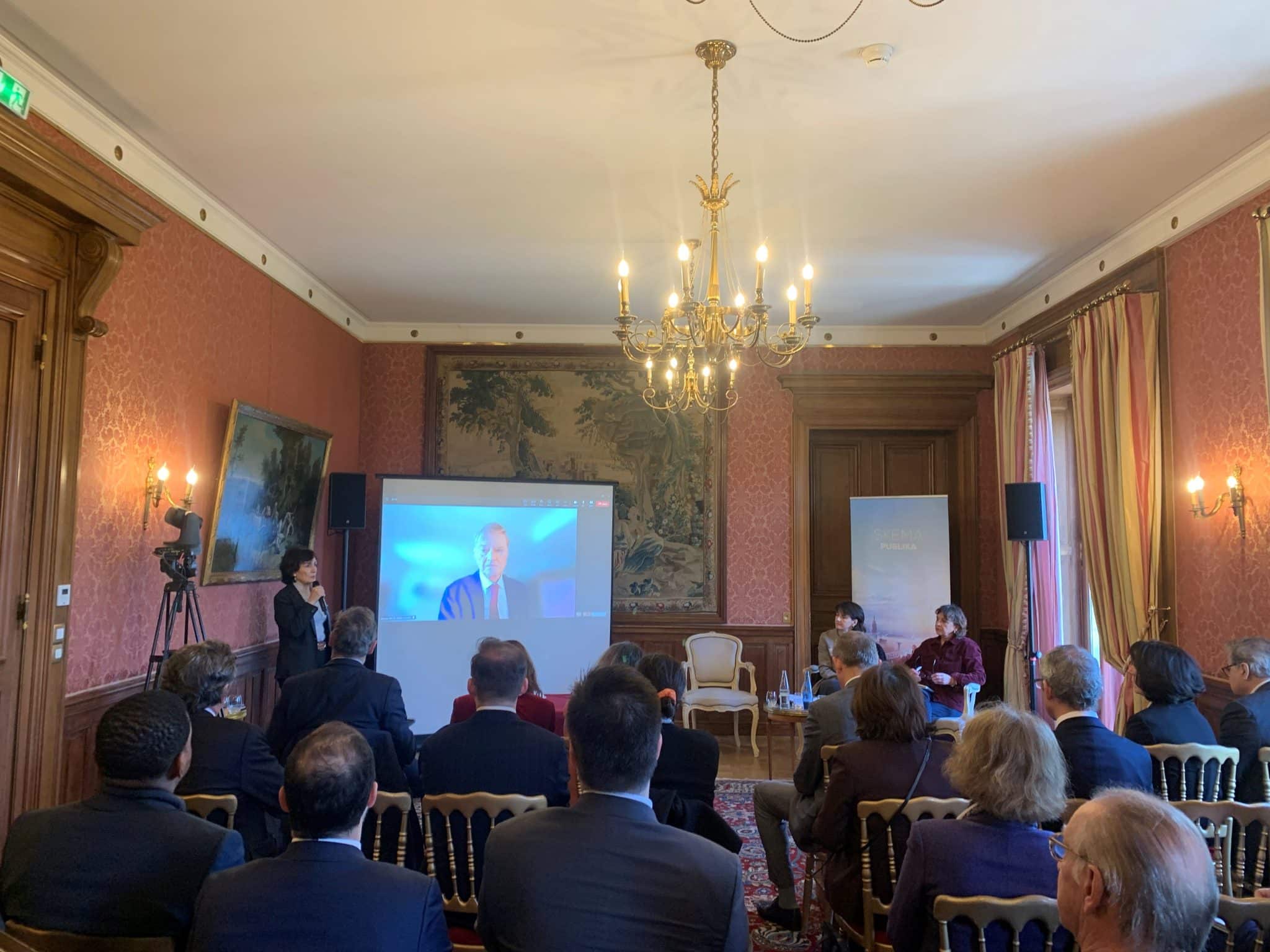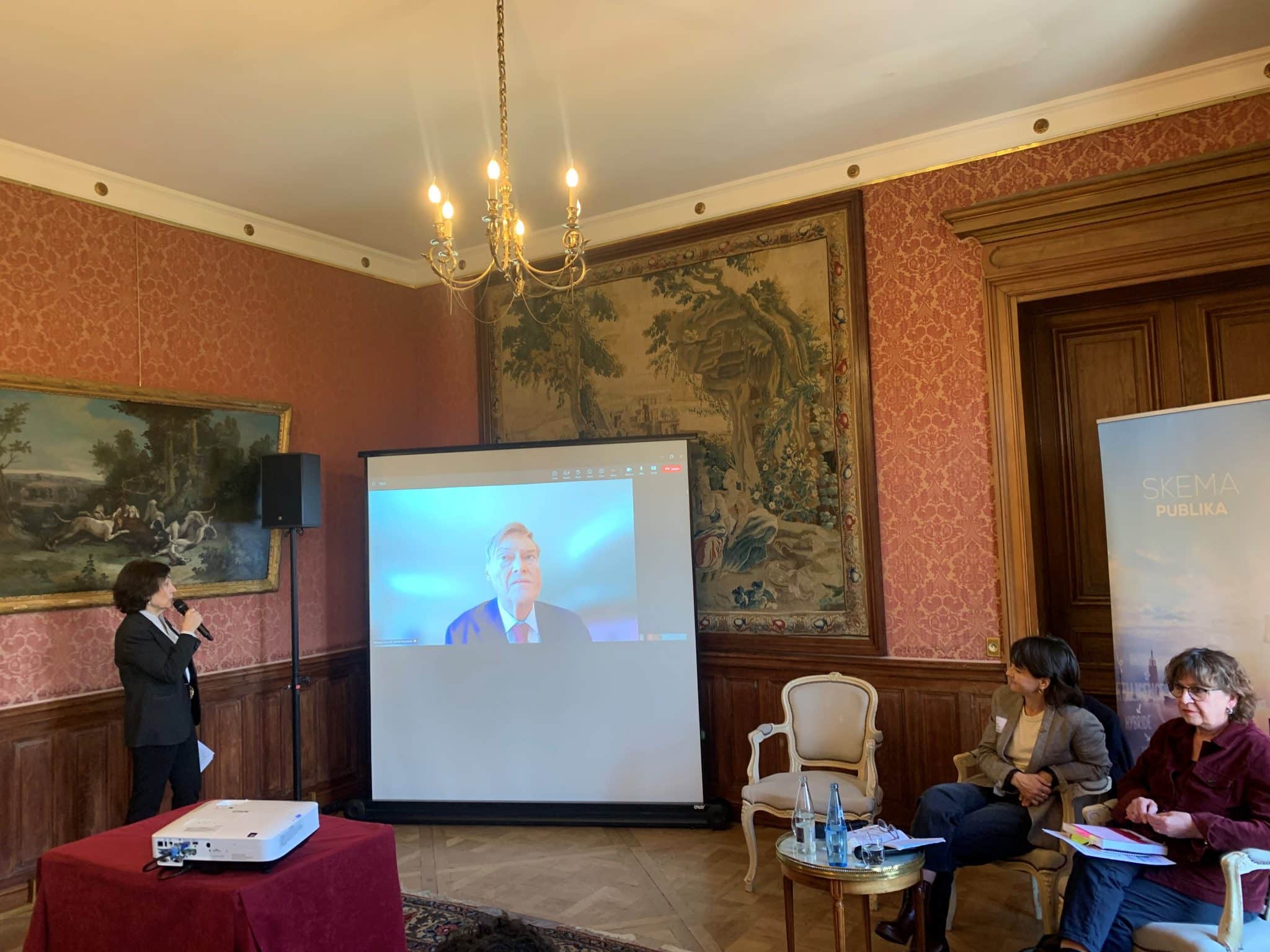This event is part of our conference cycle “At the heart of influences”.
‘Deep state’ or fantasy? Described as a “tentacular phenomenon” by the Sénat investigation committee in its March 2022 report, the influence of private consultancies on the elaboration of public policy led France’s upper house to adopt a bill aimed at increasing supervision over the Government’s use of such firms. Fifteen months then passed before the bill was presented to the National Assembly, where the text was largely reworked and even – in the words of the bill’s supporters – “distorted”. On the 1st of February 2024, the amended version of the bill was sent back to the Sénat for a second reading, raising fears that the discussions will stall and signalling a potential lack of political will to do without consultants in the public sector. Concomitantly, the French government announced on 26 March 2024 the creation of an internal public consulting agency. Will this be enough to remedy the problems identified by the Sénat investigation committee and prevent further risks of abuse highlighted by journalists and essayists?
As part of our conference cycle ‘At the heart of influences’, we decided to take stock of the situation and dedicate our fourth meeting to this theme. The event, entitled ‘What influence do consulting firms have on public policy?’ was held on 28 March 2024, at the Cercle de l’Union Interalliée.
Speakers (in order of appearance):
- Mr Yves Morieux, Senior Advisor to the Boston Consulting Group (BCG), former Senior Partner and Director of the Institute for Organisation, author of Smart Simplicity
- Ms Caroline Michel-Aguirre, special correspondent with Le Nouvel Obs, co-author of Les Infiltrés. Comment les cabinets de conseil ont pris le contrôle de l’État (Infiltrated: How consulting firms took control of the State
- Ms Éliane Assassi, Honorary Senator and Rapporteur for the committee investigating the growing influence of private consulting firms on public policy
Moderated by Ms Claude Revel, Director of SKEMA Publika and former French Interdepartmental Delegate for Economic Intelligence.
With their complementary experiences and points of view, our speakers were able to shed light on the various questions raised by the State’s repeated use of private consulting firms in recent years: is this practice an appropriate use of public funds? Is it really necessary? What are the consequences for the sovereignty and legitimacy of the State?
To understand why government ministries and operators might be tempted to call on strategy consulting firms, our speakers began by highlighting their added value(s). Consultants aim to identify anomalies (such as the decline over time in the annual increase in productivity). In particular, they strive to overcome the complication (multiplication of structures, committees, meetings, processes, reporting, etc.) in which organisations often indulge in the face of an increasingly complex environment (regulations, technological breakthroughs, society, competition, etc.).
However, through a series of examples – such as the hospital reform – our speakers also illustrated the potential abuses caused by the Government’s systematic use of consultancies. Indeed, the value proposition of said firms sometimes seems to amount to importing management methods from the private sector to improve public service performance by cutting costs, thereby ignoring the specific operating characteristics of each field. Although appealing, this approach – that of new public management – has given rise in the past to absurd situations when adopted indiscriminately.
Encouraged by the consulting firms’ ability to create their own market, the French government’s dependence on consultancies has nevertheless been organised, at least in part, by the State itself, and in particular by senior civil servants. The training they receive plays a significant role. What’s more, since a consulting firm can never be held accountable for execution errors, the use of consultants allows decisionmakers to dilute responsibility, ridding them of their obligation to answer for the choices that are being made. An opportunity that other civil servants perceive as unfair competition…
Finally, discussions with the audience highlighted the weight of new public management as an underlying ideology, which could explain the persistence of consulting firms’ influence on public policy. Consequently, preventing government ministries and operators from calling on consultants does not guarantee that (senior) civil servants will stop governing like consultants. The question is not simply one of means. It is a social issue: do we still believe in the possibility of a high-quality public service in France?
A detailed summary of talks and discussions can be found below.




